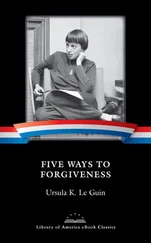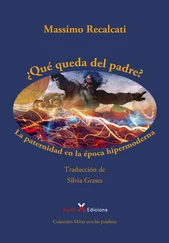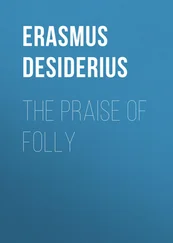Faced with this cynical, scientific demolition of love, it seems there are two remaining options: to accept the inevitable corruption of the bond and regularly change partners in order to revitalize one’s own love life (a change that can also lead to a parallel love life being maintained, as is the case with affairs), or to resign oneself to a life without desire, to the monotony of the family charade, guaranteeing oneself monogamous emotional security as a counterpart to the acceptance of the mortal desiccation of desire.
But are these really the only paths we can follow? Can psychoanalysis accept that the loving discourse be reduced to the vacuous metonymy of desire or the disenchanted resignation to the boredom provided by the reality principle? Does this not fall short of its critical mission, that of refusing any conformist accommodation of desire?
We must be clear that our times are not the same as those experienced by Freud. Back then, psychoanalysis had made a significant critical contribution to the deconstruction of the romantic Ideal of love, demonstrating how this Ideal was often a cover for the obscene, unspeakable real of the drive. It was therefore used to unmake love as an artificial Ideal that ended up imposing a straitjacket on the unconscious power of desire. The suspicions of the psychoanalyst revealed how greed and affirmation of the Ego went hand in hand with all altruistic sentiment, like a heavy shadow, including that of love. This is a thesis that we find not only in Freud but in the majority of reflections, even the most recent, made by psychoanalysts on the subject of love. Love is a trick, the effect of a temporary blindness that leads us to mistake the other for our ideal Ego. 7The truth is that the urge of the drive reduces the value of the object to a mere instrument of its own demand for satisfaction. What counts is the satisfaction of the drive, to which the particular existence of the object is entirely indifferent. This is one of Freud’s theories that demonstrates the entirely secondary (‘variable’) character of the beloved object: the drive demands the satisfaction of the One, who is not at all interested in the fate of the Other. 8
The heretical moment foretold by psychoanalysis contains within it a rightful demand: to demonstrate the extent to which narcissistic love is an illusion that does not feed the bond with the Other, but that reinforces the Ego’s passionate, one-way devotion to itself. When I say ‘I love you’, I am also saying ‘I love myself through you.’ Freud is clear on this point: when I choose to love the Other, I choose to love the person who represents the ideal image of my Ego. Love can have many sides and one of these is without doubt that of a scam, of blindness, of suggestion, of hypnosis, of narcissistically falling in love. 9
Today, this act of unmasking the loving Ideal has ended up fatally colluding with the hyper-hedonistic cynicism of the capitalist discourse. Psychoanalysis has unwittingly served the new master – the capitalist discourse – which decrees love to be an illusion, whilst insisting that what counts in life is the acquisition of the highest possible quota of enjoyment. It is also for this reason that the time has come for psychoanalysis to say something more on love. If this disenchantment has come from the dominant ideology that dismisses everything beyond the closed horizon of the Ego as naïve belief and pure misrecognition, then psychoanalysis needs to rediscover the role it plays in sustaining critical social theory, recovering the dimension of love as absolute exposure, as an irreducible and unique point of resistance in the face of the cynical and narcissistic bent that feeds the capitalist discourse. This means revaluating psychoanalysis, seeing it as a possible discourse on love that cannot be absorbed by either the libertine worship of desire without ties or the bourgeois resignation to lifeless routine, rather than solely as a force that deconstructs the loving Ideal. Is it not up to psychoanalysis, today more than ever, to endorse once more the dimension of love in its absolute risk? Should psychoanalysis itself not wager the existence of a new love, a ‘new love’ capable, as Lacan would have said, of making desire (as a demand for love that makes the loved one unique and irreplaceable) and enjoyment (as the urge of an erotic body of drive) converge with love rather than dissociate from it?
Our time is built upon two fundamental lies about the nature of human beings. The first sees them as independent, free, autonomous, free from symbolic debts to the Other from which they hail. This is the narcissistic lie that feeds the individualistic cult of one’s own image and that, in turn, lays the basis for the fantasy of liberty and self-generation, the ideal of making a name for oneself without passing through the Other.
The second lie exalts the New as the guiding principle in the life of desire. This lie maintains that goodness, salvation and satisfaction reside in what we do not yet possess: in the new object, the new partner, the new sensation. From this comes a purely nihilistic version of desire, which works to breathlessly pursue that which, in reality, is destined to always be lacking. 10
These two great lies of our time are bound together, reinforcing one another. Making a name for oneself without passing through the Other – misrecognizing the symbolic debt that ties us to it – feeds a purely perverse version of freedom as being able to do exactly as we please. The crazed racing of desire between one object and the next seems to therefore take on the traits of a genuinely collective hallucination. Desire is pulled like a magnet towards the new object, the new sensation, the new encounter, the new love. Goodness is never found in what we have but always deferred, to be found in that which we do not yet possess. And it is precisely here that the machine of the capitalist discourse finds the principle of its own function: not to meet needs but to transform them into pseudo-desires that are impossible to satisfy and that, precisely because of this impossibility, appear to be perennially enticed by the siren song of the New Object. This is the hyper-modern version of the capitalist machine that carries with it the absence of care for what we have and the compulsive urge to reach that which we lack, reducing lack to a void that yearns mindlessly to be filled, though this is, in reality, always deferred. 11Total satisfaction is postponed in a beyond that reveals itself to be inaccessible. So boredom sets in even more quickly, living off relationships like a parasite, feeding the unsatisfied urge towards that which we do not have. This framework obviously also has an impact on loving bonds, with devastating and, paradoxically, illusionistic consequences. Isn’t this perhaps the radical disenchantment that, as we have seen, reduces the kiss to hygienic safeguarding, and falling in love to an onslaught of dopamine destined to rapidly run out, before creating a new form of enchantment? The hypnotic suggestion provoked by the New turns love that lasts, love that wants to be forever, into nothing more than a meaningless word, or worse, an advertising slogan. Shouldn’t we then think today that the great illusion is no longer that of an everlasting love, but the destruction of love as an effect of the exaltation of a freedom made of nothingness? And if this were the case, would love that refuses to retreat when faced with commitment, at risk of absolute exposure, not be a unique point of resistance to its cynical liquidation as promoted by modern cynicism?
The New Libertine Ideology
The libertine regime is sustained by the enchantment of the New, which dissolves any representation of the eternal, considering it a childish product of the human imagination. It aims to render any lasting encounter impossible. It wants to unmask fidelity to the Same as if it were a lie. The desire that wants to be entirely free rejects any idea of fidelity and constancy in the name of a permanent spontaneity. The capitalist discourse experiences every kind of bond as an obstacle to its unquestioned affirmation. In this sense, humans are reduced to nothing more than goods in an even more radical way than that described by Marx. Bonds seem to be unable to hold in the face of a freedom that wants to be absolute, rejecting any experience of the limit. The generalized hyperactivity fed by the capitalist discourse deludes us, causing us to believe that there are no second chances, that what counts in this is not even the accumulation of enjoyment, as the ascetic-Weberian version of capitalism would have it, but its multiplication. 12For this reason, every bond becomes a limit, a point of resistance to the crazed motion of the capitalist discourse’s unchecked machine. Everything is rendered volatile in a purely nihilistic regime of desire, in which, as Lacan wrote, it is not so much the subject that confuses its prey with its shadow, as if there were some kind of visual defect, but the subject itself that is prey to the shadow . 13
Читать дальше











